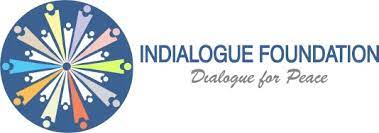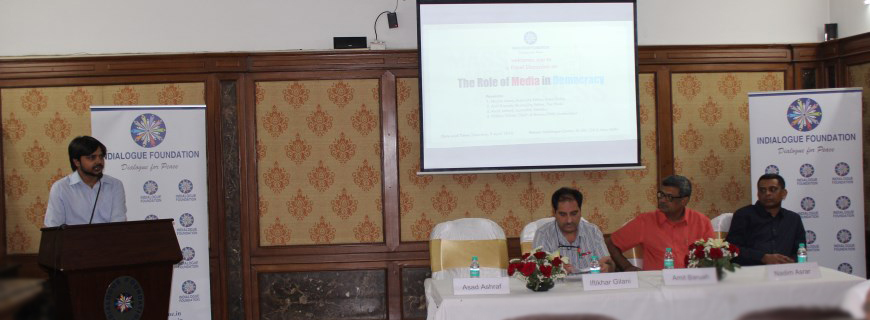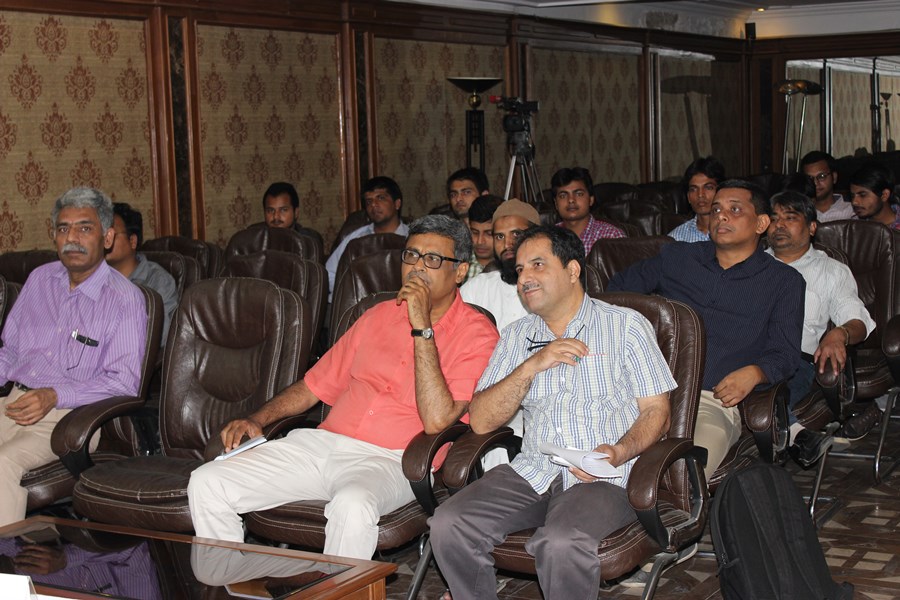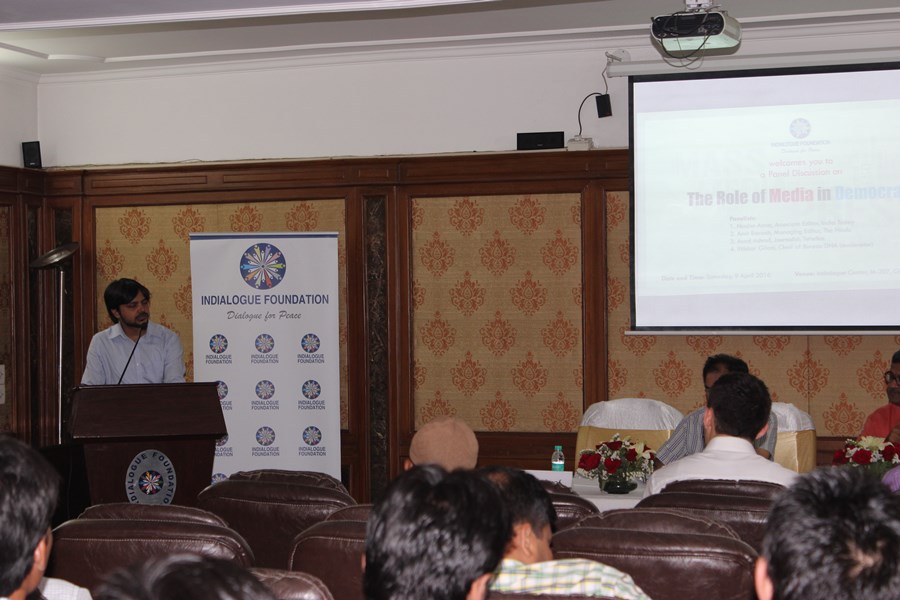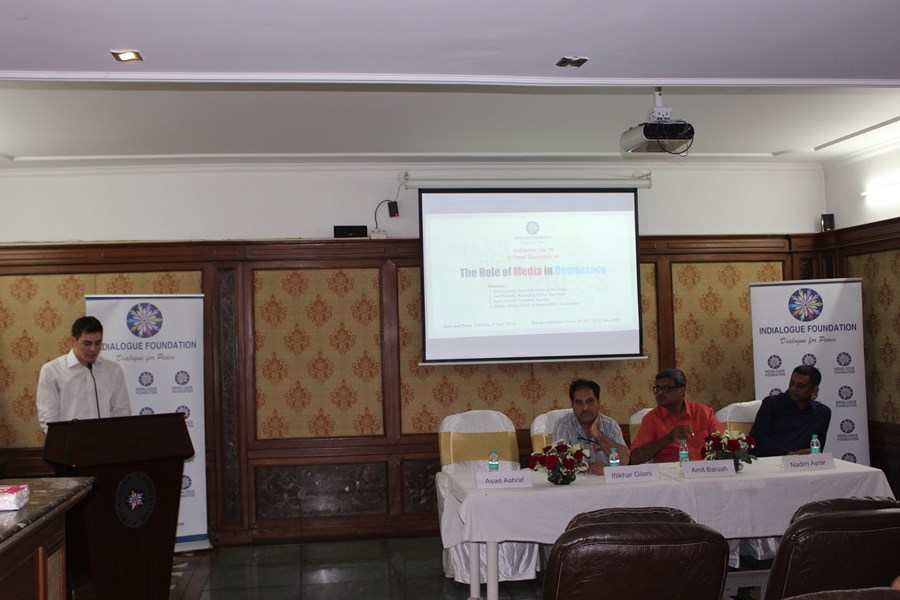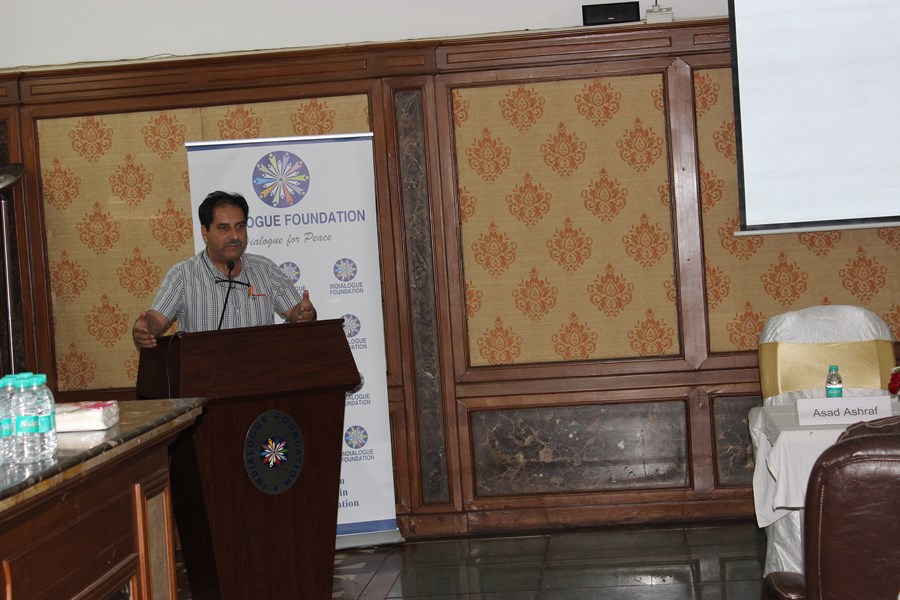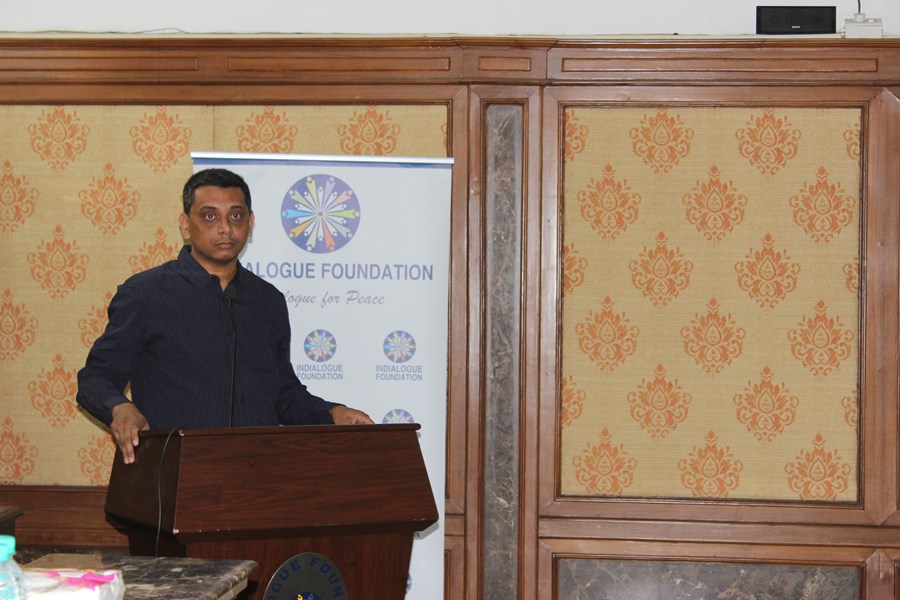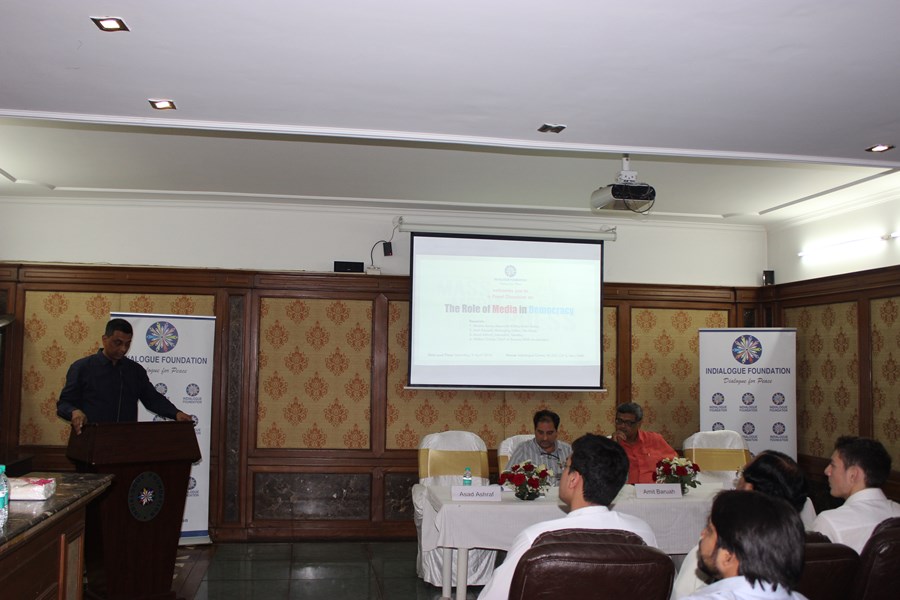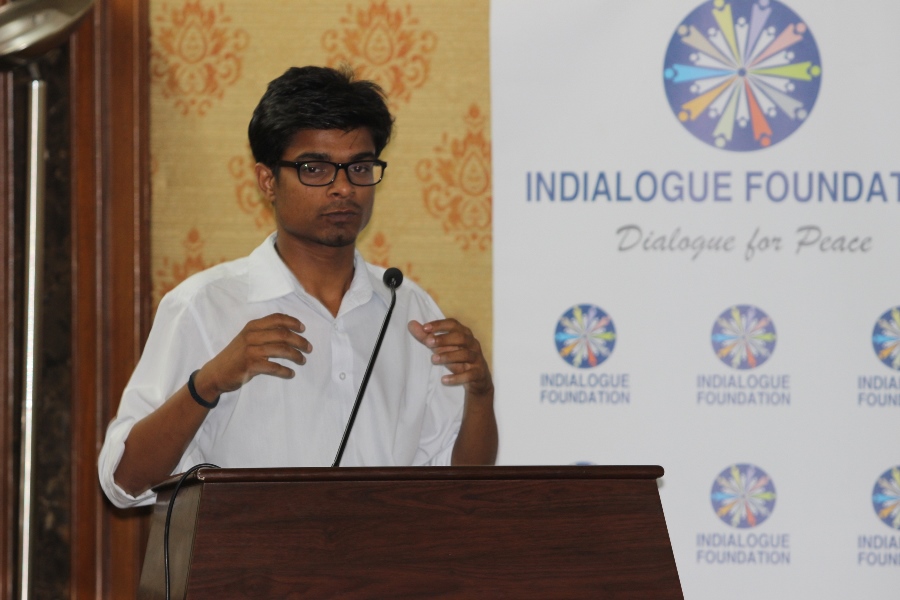NEW DELHI, 09/04/2016: Indialogue Foundation brought together senior journalists, policymakers, academics and media development professionals on a panel to debate “The Role of the Media in Democracy”, organized at Indialogue Center, GK II, New Delhi. At a time of unprecedented challenge and change in journalism, this debate explored to set out how the potential of the media can be seized to improve development and greater democratization in the society.
The objective of this discussion was to examine the role of media in greater democratization. The panel involved a comparative analysis of media contents, methods or styles of presentation, and the environment in which the media operate. The specific objectives are to:
- Examine the role of media in democracy.
- Determine the extent to which the media impact on societal perception.
- Evaluate the ways in which the media influence events in society
- Explore the factors which influence the role of media in national development.
After a formal introduction of Indialogue Foundation, the media coordinator at the Foundation Mr. Noorjan Komekov, by briefing the concept, emphasized the constructive roles which media can potentially play to make a society vibrant, vigil and developed.
The chair of the session Mr. Syed Iftekhar Gilani, Chief of National Bureau DNA (Daily News Analysis) the senior journalist opened the panel. He shared that popular satisfaction with democratic governance is low in society and that the media can play an important role in democratic consolidation.
The media, with specific reference to the collective entity of newspapers, radio, television and the International Network (Internet), play a very important role in creating democratic environment. The real influence of the media on any democratic set up will depend on the media themselves, the societies in which they operate, and the audience they reach. None of these factors are the same everywhere, at all times, or under all conditions. Even among similar types of government, other factors, such as technology, the target audience and the message, may influence the extent of media impact in the society. Media as a double aged sword we cannot ignore its duality.
Renowned journalist Mr. Amit Baruah (Managing Editor, National Editions of The Hindu) second on the panel, provided that the media as an important de facto power driving their respective economic and political systems. While the public valued the role of the media as a watchdog on government actions, he stated that the media’s role in forming public opinion meant that they, not the people, exercised the greatest influence on governments. Mr. Baruah, by focusing on enquiry, integrity and fraternity discussed the growing web of linkages that tie the media and the government and the implications of these relationships for press freedom.
The last on the panel Mr.Nadim Asrar (Associate Editor at India Today) has argued that there must be a two way process for democracy to be sustained. (1) Democratization through media (2) Democratization of media itself. Sharing his experience in the field he questioned the functioning of media and argued that it is difficult to out-and-out call someone a “liar” in the press. Each country’s specific experience with democracy and the media, for better or for worse, depends primarily on what the press is capable of finding out and reporting about.
Finally, with some valuable interventions from the audience, a summative evaluation of the whole discussion was given by the chair.
Page Hits–903
